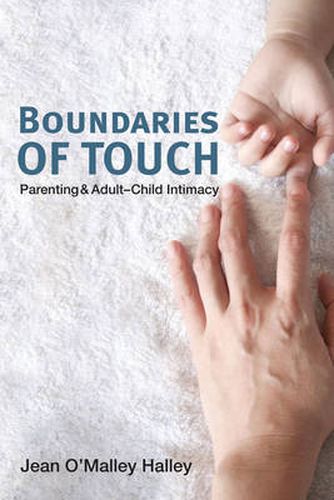Readings Newsletter
Become a Readings Member to make your shopping experience even easier.
Sign in or sign up for free!
You’re not far away from qualifying for FREE standard shipping within Australia
You’ve qualified for FREE standard shipping within Australia
The cart is loading…






Discussing issues of parent-child contact ranging from breastfeeding and sleeping arrangements to sexual abuse, Jean O'Malley Halley traces the evolution of mainstream ideas about touching between adults and children over the course of the twentieth century. Boundaries of Touch shows how arguments about adult-child touch have been politicized, simplified, and bifurcated into ‘naturalist’ and ‘behaviourist’ viewpoints, thereby sharpening certain binary constructions such as mind/body and male/female. In addition to contemporary periodicals and self-help books on child rearing, Halley uses information gathered from interviews she conducted with mothers ranging in age from twenty-eight to seventy-three. Throughout, she reveals how the parent-child relationship, far from being a private or benign subject, continues as a highly contested, politicized affair of keen public interest.
$9.00 standard shipping within Australia
FREE standard shipping within Australia for orders over $100.00
Express & International shipping calculated at checkout
Discussing issues of parent-child contact ranging from breastfeeding and sleeping arrangements to sexual abuse, Jean O'Malley Halley traces the evolution of mainstream ideas about touching between adults and children over the course of the twentieth century. Boundaries of Touch shows how arguments about adult-child touch have been politicized, simplified, and bifurcated into ‘naturalist’ and ‘behaviourist’ viewpoints, thereby sharpening certain binary constructions such as mind/body and male/female. In addition to contemporary periodicals and self-help books on child rearing, Halley uses information gathered from interviews she conducted with mothers ranging in age from twenty-eight to seventy-three. Throughout, she reveals how the parent-child relationship, far from being a private or benign subject, continues as a highly contested, politicized affair of keen public interest.